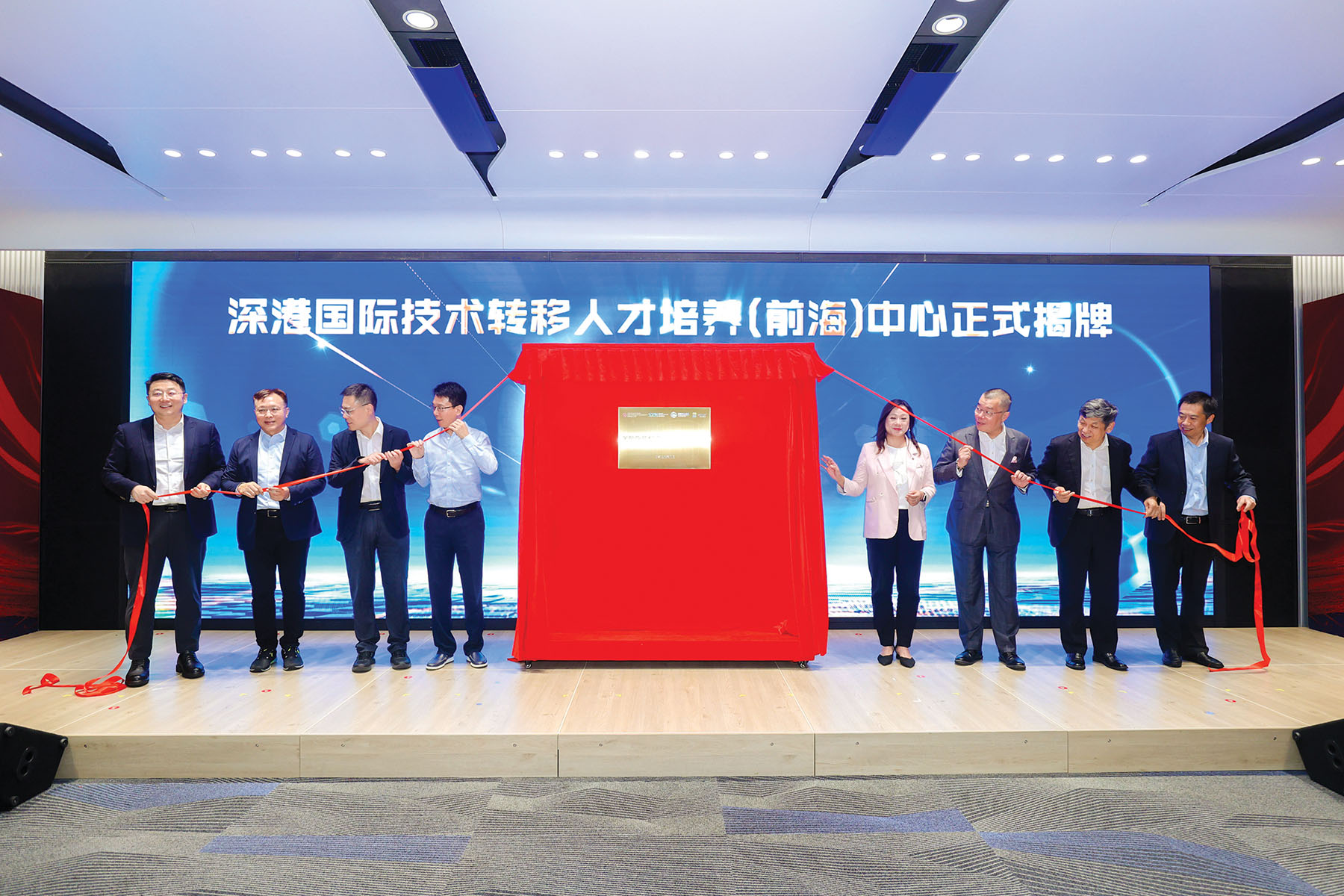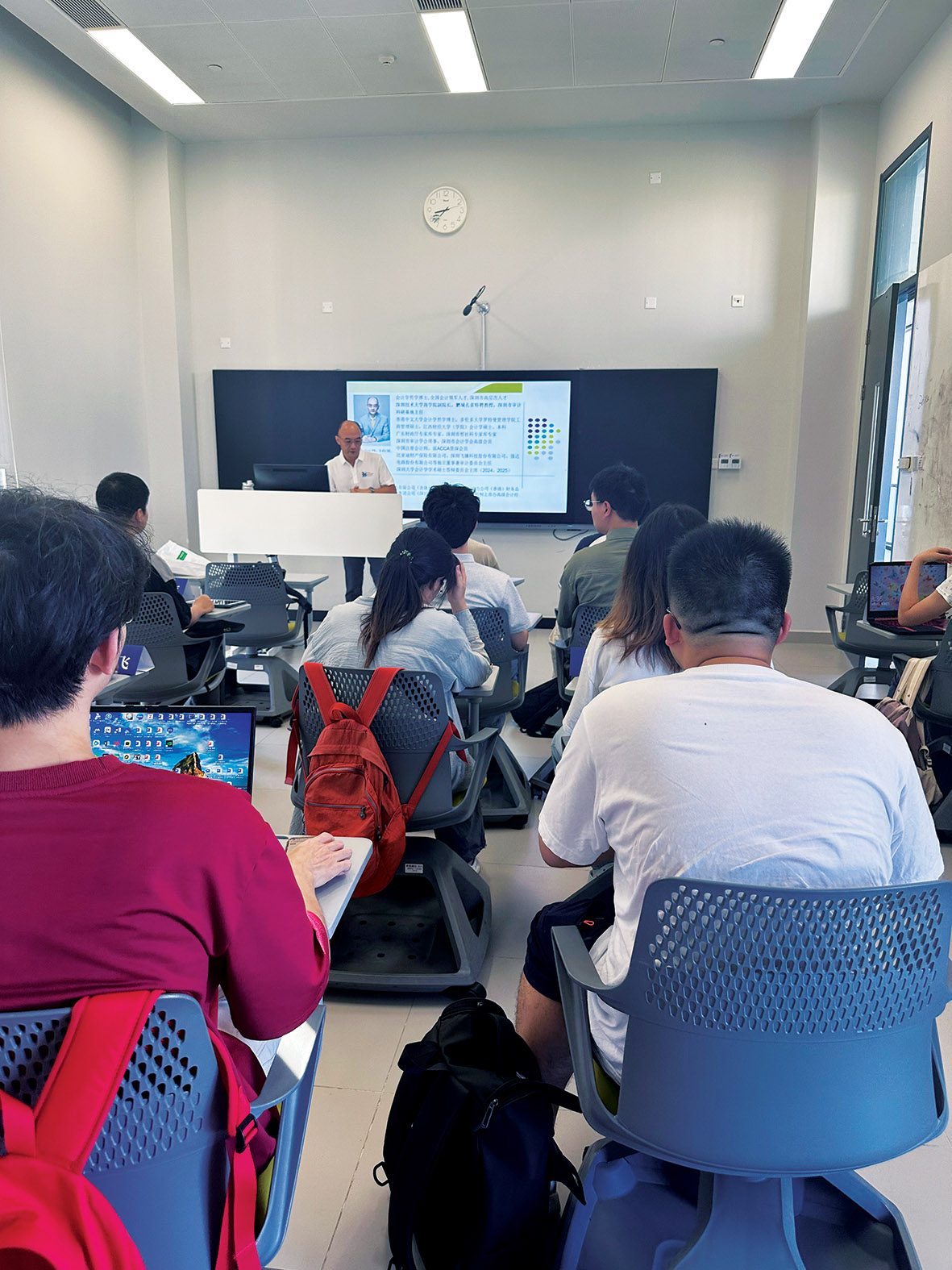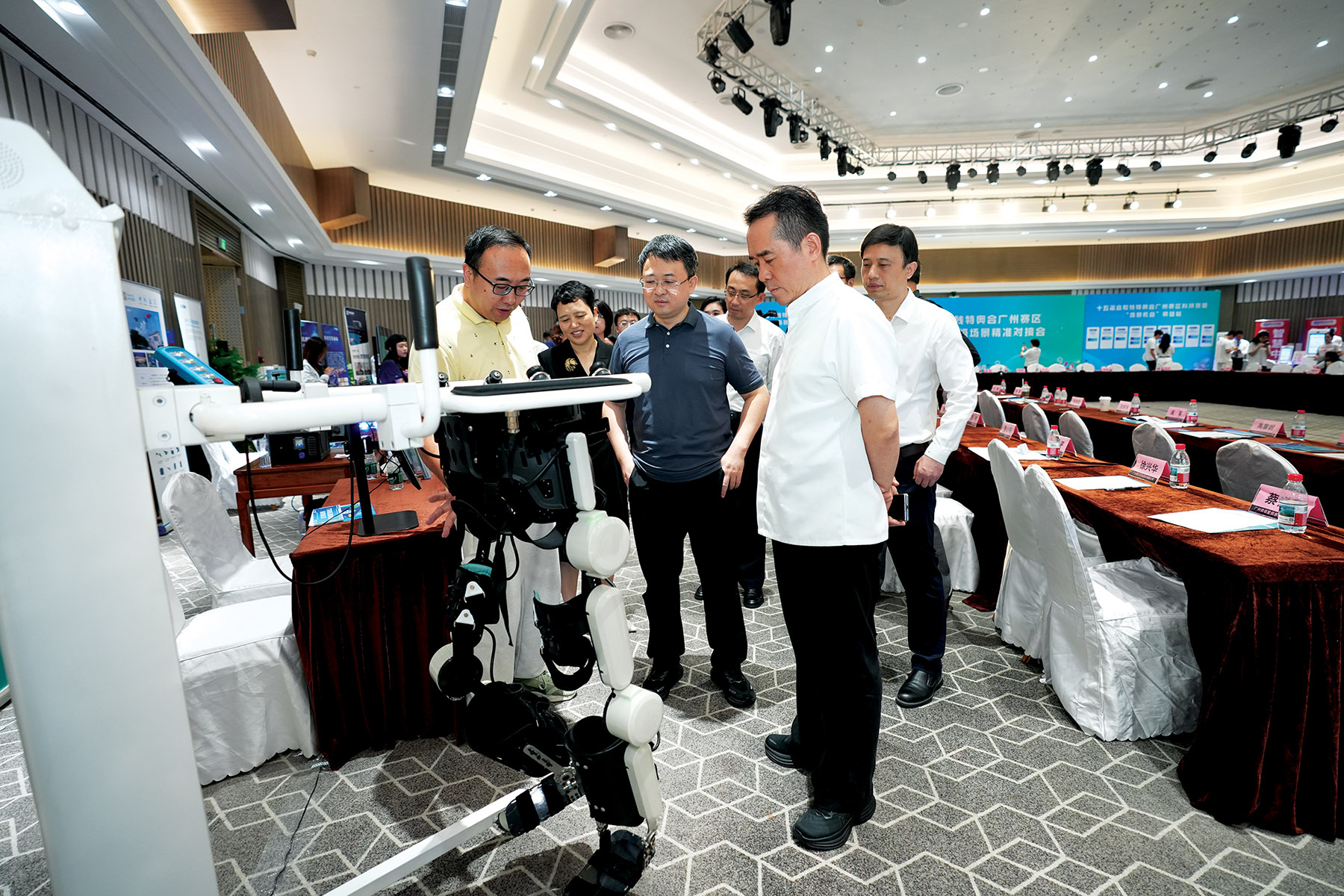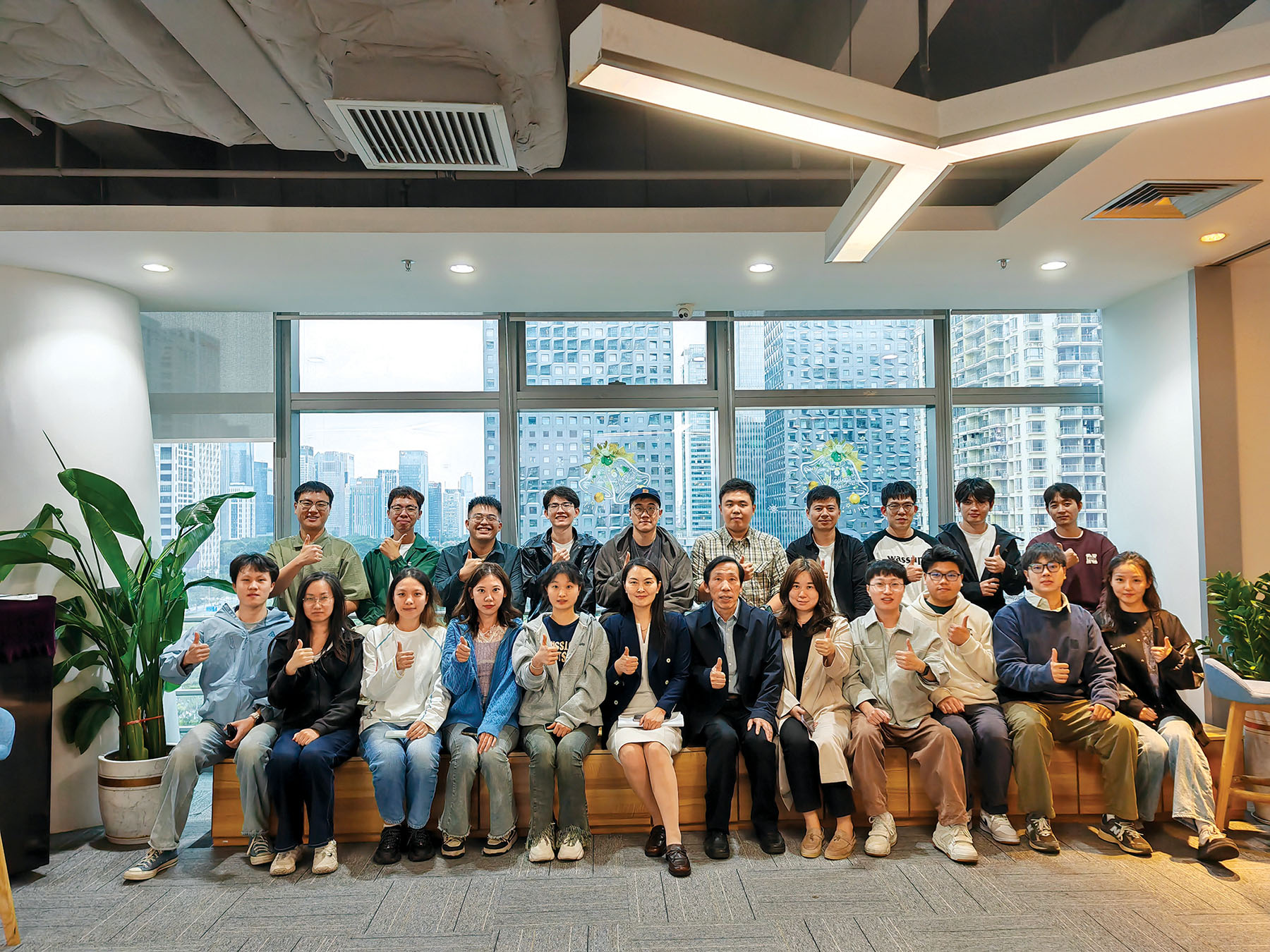A unique collaboration among universities, startups, and industry leaders is nurturing a new breed of technology managers — vital intermediaries who accelerate commercialization and bolster the nation’s innovation ecosystem. Li Bingcun reports from Shenzhen.

As global innovation deepens and technologies diversify, stakeholders throughout the industrial chain are stepping out of their comfort zones to explore new knowledge, becoming key players in driving technological transformation.
Cheng Cheng, a graduate student in optoelectronic information engineering — a field focused on devices that manipulate light — is undertaking a specialized business program in Shenzhen.
For most of her academic career, Cheng spent countless hours in her lab developing innovative materials. She once invested an entire year in a single prototype. Now, she faces a new challenge: absorbing over 20 business courses within three months, covering areas like technology assessment, market insights, financial operations, legal practices, and corporate management.
READ MORE: Hetao: Zone of talent
This interdisciplinary training is designed to help her understand the market, evaluate the significance of her research, and protect her intellectual property, ultimately aligning her scientific pursuits with industry needs.
Cheng is on a path to becoming a technology manager, a burgeoning profession in the Guangdong-Hong Kong-Macao Greater Bay Area aimed at catalyzing technology transfer.
Serving as the bond between science and industry, technology managers play a pivotal role in China’s blueprint to turbocharge technology transfer and remain competitive in the global technological landscape. Candidates for this role come from all segments of the innovation chain, such as universities, enterprises, investment funds, and incubators.

In response to the national call for talent cultivation, Shenzhen Technology University established South China’s first Technology Manager School in June, inviting seasoned industry experts to mentor graduate students from various disciplines in exploring market opportunities.
Cheng said that while her research team’s work — spanning optics, microelectronics, and information engineering — has broad application potential, many are stalled at the lab stage. This is a common issue in academia, where limited industrialization capacity and disconnections with industry prevent promising technologies from reaching the market.
For example, her team has utilized optical sensors to measure tannin levels in wine, which can improve flavor and food safety. They are also developing glass materials that automatically adjust light intensity to save energy. Through her business courses, Cheng aspires to commercialize these hard-earned research outcomes, ensuring they have real-world impacts rather than remaining theoretical.
She also hopes that her newfound business knowledge will provide fresh perspectives for her research, helping her identify industry pain points and societal needs, expand her professional network, and foster more extensive and in-depth industry-academia-research collaborations.

An urgent new need
In 2022, “technology manager” was officially recognized as a profession in China. By 2030, the number of practitioners is projected to reach between 100,000 and 150,000. Against this backdrop, the Greater Bay Area, with its vibrant innovation ecosystem and comprehensive industrial chains, is making pioneering strides.
Qin Haiou, one of the country’s most experienced technology management professionals, is assembling resources for a one-stop service platform aimed at maximizing the profession’s influence.
As chairman of the Greater Bay Area Technology Innovation Service Center, Qin is leading efforts to precisely match the innovation demands of leading enterprises with research outcomes from academic institutions. The center organizes regular matchmaking activities in fields like nanotechnology, electronics, marine science, and space science and technology.
Qin said that large enterprises have traditionally relied on self-innovation for technological breakthroughs. However, this approach faces growing limitations as major research institutions have amassed significant resources through national initiatives, which do not naturally address corporate needs.
Cross-sector collaboration may hold the key to greater creativity and serve as a flexible alternative to traditional technology acquisition.
The center has fostered partnerships with research institutions to enhance research and development efficiency. For instance, it connected Dongfeng Nissan with Hong Kong University of Science and Technology (Guangzhou) to jointly develop an anti-motion sickness technology for electric cars.
Through the transformation and upgrading of traditional enterprises, Qin anticipates that their inherent advantages will be revitalized, leading to new forms of productivity.
Looking ahead, he believes technology managers will evolve from mere connectors to partners, engaged throughout the entire lifecycle of innovation projects.
He also sees significant opportunities for collaboration with small enterprises, through equity partnerships, to help them build lasting technological advantages.
To further accelerate technology transfer, the center has developed an artificial intelligence-powered online platform that intelligently matches research institutions and enterprises. In addition to analyzing technological advantages, patents, application potential, and market demand, the platform offers job recommendations for technology managers, fundraising support for enterprises, and industry insights.
The platform has aggregated over 7,000 scientific achievements and 2,000 technological demands, attracting registrations from 1,600 technology managers nationwide.

Strong cross-border ties
Meanwhile, the Greater Bay Area is also cultivating a more mature innovation ecosystem through growing cross-border collaboration between veteran tech transfer professionals in Shenzhen and Hong Kong.
In late August, Shenzhen and Hong Kong jointly established the nation’s first organization to offer both domestic and international certification for technology transfer professionals. The designated training center is located in Qianhai Shenzhen-Hong Kong Modern Service Industry Cooperation Zone.
The center was co-founded by Qianhai Technology and Innovation Group, the Hong Kong Polytechnic University (PolyU), and technology startup acceleration platform Zebras.
Witman Hung Wai-man, co-founder of Zebras, said the center’s training courses integrate Hong Kong’s strengths in aligning with international certification standards and the Chinese mainland’s robust industry resources.
The center also matches aspiring technology managers with research projects led by university professors. “We hope to bring university projects off campus, inviting industry stakeholders to join in and form startup teams for commercialization,” Hung said. “This approach is expected to improve the ecosystem and create more opportunities for technology transfer.”
The training project plans to include more universities in the region, such as City University of Hong Kong and the University of Hong Kong, and to expand its reach to other cities in the Greater Bay Area to maximize its influence and leverage supply chain resources.
Hung said, “In contrast to the internet economy era a decade ago, when innovative ideas and swift actions could secure market dominance, success now hinges much on companies’ technological sophistication and manufacturing capabilities. Establishing a genuine technological edge is crucial for maintaining competitiveness.”
Beyond scientists and entrepreneurs, Hung highlighted the vital role of “engineers” with versatile knowledge and skills, calling them the “linchpin of technology transfer”.
Hong Kong universities, which have long contributed to innovation in the Greater Bay Area, can generate new momentum for industrial upgrading through talent cultivation, he added.
Wong Ka-tat, director of the Knowledge Transfer and Entrepreneurship Office at PolyU, who also contributed to the center’s establishment, observed that Hong Kong still lacks sufficient emphasis on technology transfer.

The Hong Kong SAR government’s HK$200 billion ($26 billion) investment in innovation and technology in recent years demonstrates a strong commitment to transforming the economy away from overreliance on finance and real estate toward high-quality innovation-driven development. This shift calls for technology managers who can integrate multidomain expertise.
Compared with the mainland, Hong Kong’s relatively weaker industrial foundation presents challenges to technology transfer, making the role of tech managers even more indispensable.
Yet, few local universities offer dedicated programs to train such professionals. According to Wong, only a handful of Hong Kong professionals have obtained certifications from PolyU’s international courses as registered technology transfer professionals.
Globally, effective technology transfer has fueled local economies in places like Cambridge, Massachusetts (MIT), and California (Stanford). Although Hong Kong hosts five universities ranked among the world’s top 100, their outcomes in technology transfer have yet to match this academic reputation.
“The inventors of technology are crucial, but the role of those who facilitate large-scale applications of that technology is equally important,” Wong said.
ALSO READ: GBA robot firms ramp up mass production, eye global growth
A technology manager, he said, can bridge researchers and industry, creating a synergistic effect where “one plus one exceeds two”. This potential remains underappreciated, said Wong.
To further enhance technology transfer across the Greater Bay Area, Hung envisions establishing a comprehensive, intelligent cross-boundary network that includes all research outcomes from regional universities and all kinds of technology demands from enterprises. Such a platform would facilitate efficient matching and reduce redundant efforts.
Wong added that the current training programs primarily focus on educating university researchers about market needs, while it is equally important to help industry practitioners understand cutting-edge technological advances. Drawing on international best practices, he suggested involving industry leaders in university management and talent cultivation to deepen mutual understanding.
This approach aligns with the Innovation and Technology Talents Exchange Scheme for Industry and Academic Sectors, proposed in Hong Kong Chief Executive John Lee Ka-chiu’s September Policy Address. The initiative encourages university professors to engage in corporate R&D, while inviting enterprise executives and technical experts to teach and help develop curricula.
Wong also advocates making technology manager certification a standard requirement, similar to professions like accounting and law, to promote market standardization and fair compensation.
Contact the writer at bingcun@chinadailyhk.com


